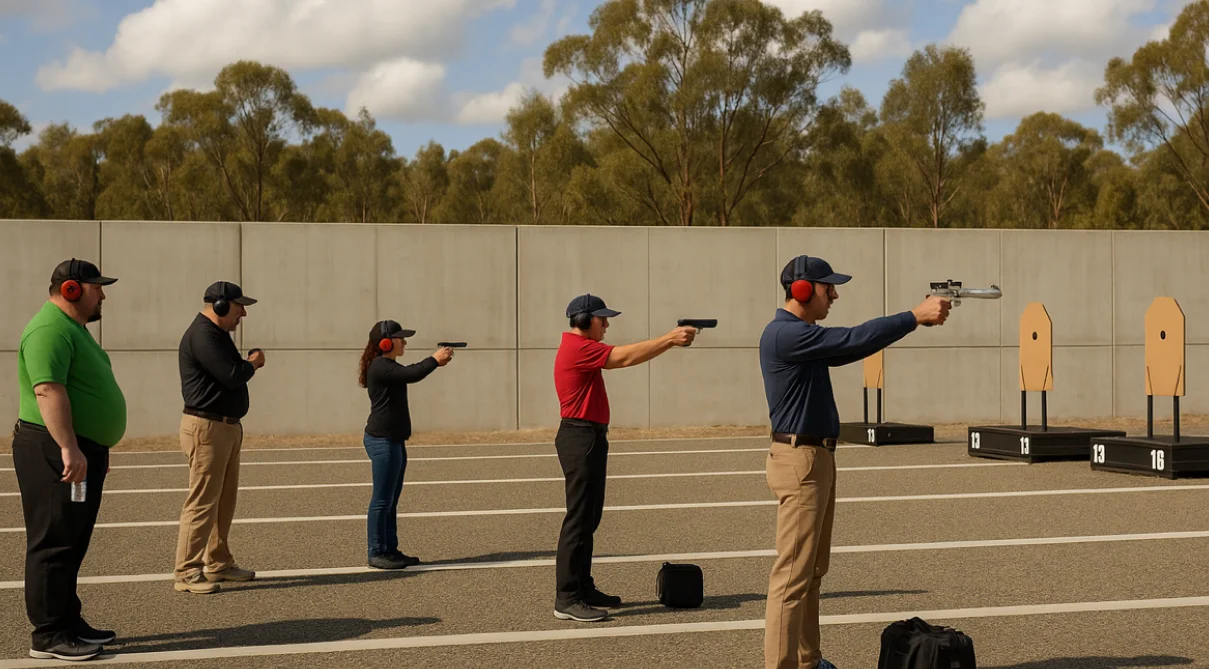Understanding Target Shooting Scoring: A Comprehensive Guide
Discover the diverse scoring systems in target shooting, from Olympic Clay Target to Precision Pistol Shooting.


Target shooting is a sport that requires precision, skill, and concentration. With various disciplines and scoring systems, it’s essential to understand how each one works. This guide provides a high-level overview of the different types of target shooting scoring systems. Future posts will delve deeper into each discipline to provide more detailed information.
What is Target Shooting?
Target shooting involves shooting at stationary or moving targets to achieve high scores. It encompasses numerous disciplines such as rifle shooting, pistol shooting, shotgun shooting, and precision rifle shooting. Each discipline has unique rules, equipment, and scoring methods.
Importance of Accurate Scoring
Accurate scoring is crucial in target shooting for ensuring fairness and ranking participants based on their performance. Technological advancements have enhanced precision and reliability in scoring. Accurate scores help shooters track their progress and improve their skills.
Overview of Scoring Systems
- Electronic Scoring Systems
- Utilize sensors and software for instant score detection and display.
- Highly accurate and provide quick results, commonly used in modern competitions.
- Manual Scoring Systems
- Traditional method using paper targets.
- Scores are manually marked by officials, requiring keen observation.
- Optical Scoring Systems
- Use cameras and algorithms to score.
- Combine manual verification with technology for enhanced accuracy.
Benefits of Modern Scoring Systems
Modern scoring systems offer several advantages over traditional methods. Electronic and optical systems reduce human error, provide instant feedback, and enhance the overall experience for competitors and officials. These systems also allow for detailed data analysis, helping shooters and coaches identify areas for improvement.
Factors Influencing Scoring
Several factors influence scoring in target shooting, including environmental conditions, equipment quality, and shooter skill level. Wind, light, and temperature can affect the trajectory of the projectile, making scoring more challenging. High-quality equipment ensures consistency and accuracy, while the shooter's skill and experience play a critical role in achieving high scores.
Training and Preparation
Proper training and preparation are essential for success in target shooting. Shooters must practice regularly to develop and maintain their skills. This includes physical conditioning, mental preparation, and technical training. Understanding the specific scoring system of their discipline allows shooters to strategise and maximise their scores.
Primary Disciplines and Their Scoring Systems
- Olympic Rifle Shooting
- Events: 10m Air Rifle, 50m Rifle Three Positions.
- Scoring: Decimal scoring, with each shot scoring up to 10.9 points for precision.
- Pistol Shooting
- Events: 10m Air Pistol, 25m Rapid Fire Pistol, 50m Pistol.
- Scoring: Combination of integer and decimal scoring systems.
- Shotgun Shooting
- Events: Trap, Skeet, Sporting Clays, Double Trap.
- Scoring: Hit/miss system, points awarded for each hit.
- Benchrest Shooting
- Events: Short-range, long-range.
- Scoring: Precision shooting at small targets, scores based on group size and accuracy.
- Silhouette Shooting
- Events: Rifle Silhouette, Pistol Silhouette.
- Scoring: Points for knocking down metal targets shaped like animals.
- Practical Shooting (IPSC/USPSA)
- Events: Handgun, Rifle, Shotgun.
- Scoring: Combination of speed and accuracy, with scoring zones on targets.
- Bullseye Pistol Shooting
- Events: Precision Pistol.
- Scoring: Concentric scoring rings, with the highest score in the center.
- Air Rifle Field Target
- Events: Open Air Rifle, Spring-Piston Air Rifle.
- Scoring: Points awarded for hitting reactive targets at various distances.
- Big Game Rifle
- Events: Various large-calibre matches.
- Scoring: Based on accuracy and the ability to hit targets at different ranges.
- Combined Services
- Events: Service Rifle, Service Pistol.
- Scoring: Uses military or service firearms, with points based on accuracy.
- Field Rifle
- Events: Rimfire and Centrefire matches.
- Scoring: Based on field shooting positions, with rapid fire and accuracy components.
- Fly Shoot
- Events: Rimfire and Centrefire matches.
- Scoring: Combination of group size and score, unique targets.
- Gallery Rifle
- Events: Short- and medium-distance events.
- Scoring: Points based on accuracy within scoring rings.
- Handgun Metallic Silhouette
- Events: Rimfire and Centrefire matches.
- Scoring: Points for knocking down metal animal-shaped targets.
- Precision Rifle Shooting
- Events: Precision Rifle Matches.
- Scoring: Shooters aim to hit targets at varying distances with precision. Points are awarded based on the accuracy and consistency of hitting targets in different conditions.
The Role of Technology in Scoring
Technology has revolutionised target shooting scoring systems. Modern electronic targets use acoustic sensors to detect the exact location of a shot, providing instant feedback and eliminating the need for manual scoring. These systems are used in major competitions, including the Olympics, ensuring accuracy and fairness. Additionally, scoring software helps in managing competitions, tracking scores, and analysing performance data.
The Future of Target Shooting Scoring
The future of target shooting scoring lies in further technological advancements and increased accessibility. Innovations such as augmented reality (AR) and virtual reality (VR) training tools are emerging, allowing shooters to practice in simulated environments. Enhanced online scoring systems with better accuracy, real-time data analysis, and integration with training programs will continue to improve the sport.
Conclusion
Understanding the different scoring systems in target shooting is essential for fair competition and skill improvement. Future posts will provide detailed insights into each discipline, exploring their specific scoring systems, events, and the technology used. Stay tuned for a comprehensive guide to mastering target shooting scoring.




